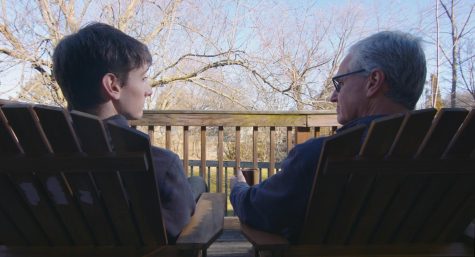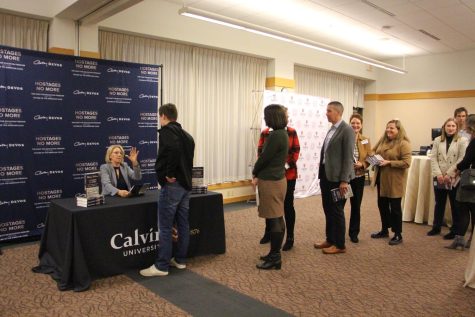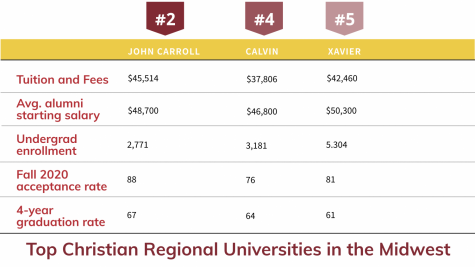LGBT+ teach-in elicits mixed reactions
Calvin College paints itself as a place where students and faculty are encouraged to explore difficult issues through the lens of Christian faith. Yet students, faculty and staff still run into roadblocks when pursuing certain topics, such as the rights and status of LGBT+-identified people.
Last Thursday, the sociology and social work departments put on their annual teach-in, this year focusing on LGBT+ topics. Students, professors, staff and community members attended sessions in the Commons Annex Lecture Hall through tangible tension between two starkly contrasted sides: those who affirm LGBT+ identities and those who view LGBT+ identities as part of the Fall.
Each session was introduced with a statement on behalf of the organizers and of President Michael Le Roy, expressing that the content presented in the session did not necessarily represent the perspective of the college.
The speaker slate included Calvin Theological Seminary professors Matthew Tuininga and Jeffrey Weima as well as former Calvin professor Nicholas Wolterstorff and Western Theological Seminary professor James Brownson. Others included psychologist John Dehlin, Sexuality Series director Julia Smith, junior Kai Giles and Chess Van Wyk ’12. Three social workers associated with Grand Rapids’ HQ youth drop-in center also ran a session: Demetria Phillips, Lourdes Flores and Brie Walter-Rooks.
Some of the speakers, like Brownson and Wolterstorff, held positions not often heard at Calvin-sponsored events. In the past, staff and faculty have been discouraged from bringing LGBT+-affirming speakers to campus. Others, like Calvin-affiliated Tuininga and Weima, were unsurprising additions to the lineup.
In a morning session, psychologist John Dehlin shared data from the largest-ever longitudinal study about the effectiveness of LGBT+ conversion therapy. His results, based on a study of over 1,600 LGBT+ Mormons, returned a zero percent success rate.
Later in the day, the group of social workers discussed the harmful effects of “ex-gay” efforts and parental rejection on LGBT+ youth. In the past few years, HQ has noted a disproportionate number of LGBT+ youth using its services.
In the most popular session of the day, Wolterstorff and Tuininga continued the conversation they have held in articles over the past few months. Wolterstorff admitted he is not a biblical scholar or theologian, but he shared how his own story led him to see the importance of loving and supporting LGBT+ members of the community. In response, Tuininga warned of the dangers of gnosticism and reiterated the Christian belief in the importance of how God created the physical body.
The evening session featured “Bible, Gender, Sexuality” author James Brownson presenting biblical support for affirming LGBT+ identities. His debate partner, Weima, rejected several of Brownson’s claims about translation, hinging his argument on the idea that Paul’s letters did not solely address same-sex behavior in terms of pederasty. Both matters came to moments of high tension during the question-and-answer time that followed their initial presentations.
Junior Robyn Stegink, a social work major, was pleased with the attitude around the teach-in:
“It was a really beautiful day of learning and discussion. The atmosphere was full of respect and genuine love, and that was amazing to see.”
Former students also attended lectures throughout the day:
“I think that by making it easier to talk about it will be easier for other students who are LGBT but closeted,” one recent graduate said. “I didn’t come out until my senior year.”
Van Wyk, another recent graduate, took part in the teach-in as a peer educator alongside Giles. They presented a 101-style introduction to LGBT+ terms that has been given in the dorms for the past six years.
At the teach-in, Van Wyk hoped they would be able to share the material with administrators and faculty. Although there were not as many “adults” as he had hoped, the ones who attended were as engaged as the students.
Other students voiced concerns about the diversity of the presenters — eight of the eleven presenters were white — and the topics addressed. Although the event was billed as “LGBT+,” some attendees felt that the first two topics of the acronym — lesbian and gay orientation — were given attention, while bisexuality and trans* matters were ignored.
First-year student Carmela Sleva went into the Wolterstorff/Tuininga debate with admittedly low expectations:
“As a queer person, you don’t get too excited when you hear that two [cisgendered, heterosexual], privileged men are going to be debating over something that personally affects your life but doesn’t affects theirs.”
Sleva was also frustrated by the way the conversation was framed. “Bi/pansexual and asexual persons are not even considered and thus completely excluded and erased. … What my community is seeing is not a civil debate over a controversial issue, but erasure and silencing, which is driving LGBTQ+ persons away from the faith.”






